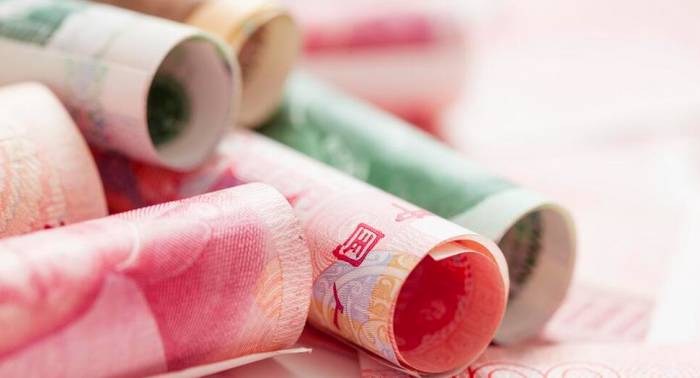Foreign reserves down by $18.7 billion? Top-level intervention!
The official announcement has revealed that as of the end of January, our country's foreign exchange reserves stand at 3,219.3 billion US dollars. Compared to the end of December last year, this represents a decrease of 18.7 billion US dollars.
The decline this time is not significant, accounting for approximately 0.58% of our country's foreign exchange reserves. The main reason is the appreciation of the US dollar, which has led to a certain degree of devaluation of non-US dollar assets within the foreign exchange reserves.
However, this news may have been overlooked by many, as in the past few days, the high-level authorities have taken several measures to stabilize the economy and confidence, which has become the more focused news.
News from the National Development and Reform Commission indicates that the additional 1 trillion yuan of government bonds issued last year have now been fully allocated. Many people, upon seeing this news, are wondering if this means we are once again engaging in monetary easing.
For the current state of China's economy, we need to analyze it from multiple perspectives.
Advertisement
Fiscal policy is one of the important means to boost China's economy. By increasing fiscal expenditure and tax cuts, social demand can be created, domestic demand can be stimulated, and the economy can be revitalized.
The government can support the development of infrastructure construction, new infrastructure, and other fields, as well as improve residents' income and consumption levels, further promoting the growth of domestic demand.
Under the current macroeconomic situation, it is very necessary to strengthen the support of fiscal policy for the economy.
The government also needs to continue to increase fiscal expenditure, especially in support of infrastructure construction and technological innovation.
Looking at the recent Caixin PMI data, our economy is gradually improving.The Caixin PMI for the service sector, although slightly decreased by 0.2, currently stands at 52.7, which is still the second-highest in the past six months, with last month reaching 52.9, the highest point in nearly half a year. This indicates that the service industry remains in an expansion phase.
The Caixin manufacturing PMI, announced earlier, was 50.8, consistent with the previous month and has been above 50 for three consecutive months. This situation is the first time since June 2021.
From these two sets of data, it can be seen that multiple policies, including fiscal stimulus, are gradually taking effect and their impacts are slowly becoming apparent.
However, over the past year, the main contradiction facing China's economy has been the insufficiency of effective domestic demand and a relative oversupply.
Lack of market demand leads to a decrease in corporate orders, affecting the operation and employment of enterprises, and also causing a series of issues such as wages.
Now it seems that the issue of confidence is an urgent problem to be solved. The main reason why people keep their money in banks is the lack of confidence.
In recent days, regulatory authorities have taken multiple actions, allowing the Chinese stock market to make a strong comeback and experience a significant rise. This can be said to be one of the important means of boosting confidence.

In the past, when the stock market performed well, we observed that money flowed from bank deposits into the stock market. After people made money through stocks and funds, the money would flow into consumption or real estate, rather than returning to bank savings.
However, when the stock market or the overall investment market does not perform well, money flows out of the stock market and does not go into consumption; most of it goes into bank deposits.
Therefore, when the stock market is doing well, consumption is unlikely to be too far behind.Of course, there are various ways to boost confidence, not limited to the capital market.
Leave a Reply